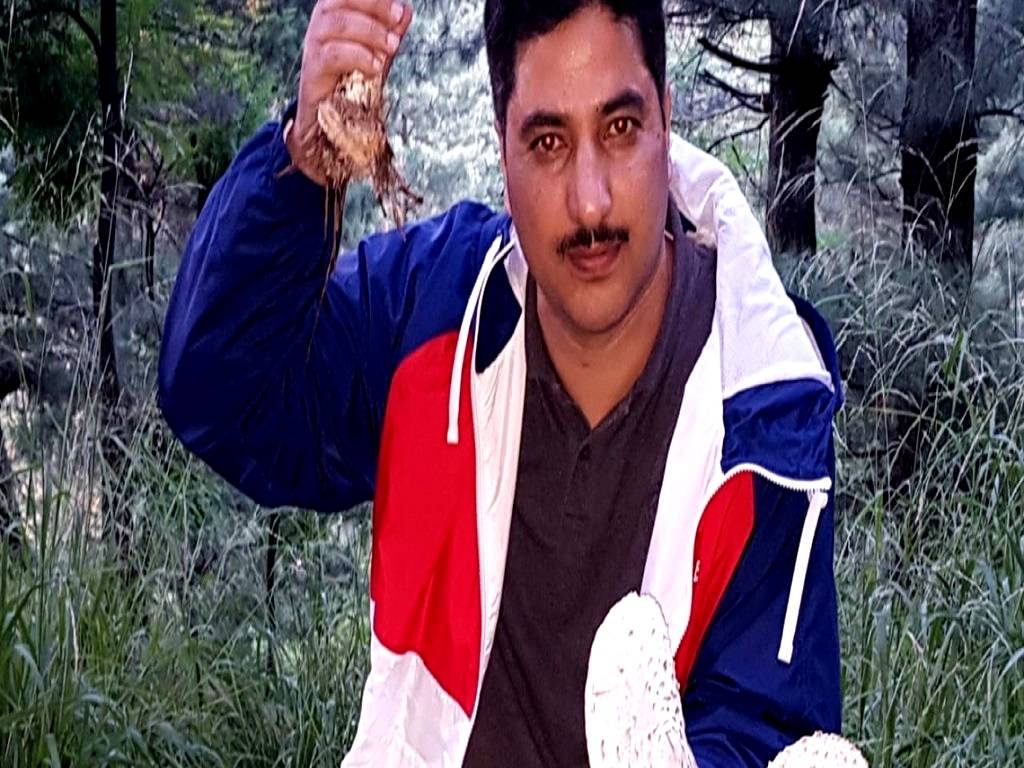
A Kashmiri researcher has taken the path less travelled in order to do comprehensive research on the valley's little-known mushroom species.
Dr. Rouf Hamza Boda grew up in the Doru Shahabad Tehsil of the Anantnag district and developed an interest in mushrooms throughout his school days.
He has carved a niche for himself in the scientific world as the author of 'Nano mushroom identifier.'
“Since I come from a village, I often used to be a part of the mushroom forays in spring. I would collect Gucchis in small wicker baskets. Along the way, I often encountered mushrooms of various shapes and sizes. Sometimes, a large shaped mushroom scared and fascinated me at the same time,” he said.
Rouf was eventually motivated to pursue his Masters' degree in Botany and do research on the wild mushroom species of Southern Kashmir.
"Fortunately, in 2010, my mentor, Dr. Abdul Hamid Wani, handed me my much-desired research topic." Furthermore, I was the first person in the valley to do research on this aspect of wild mushrooms," said Rouf, a lecturer at Government Girls Higher Secondary School in Verinaag.
In his research paper, he documented around 100 mushrooms from various sites/forest areas in south Kashmir, which were then evaluated for antioxidant activity. "I also observed their nutritive value, cultivation pattern, and taxonomy," he said.
According to Rouf, all mushrooms are fungi, and they produce spores, which are analogous to pollen or seeds and allow them to spread or travel by wind. The rest of the mushroom then matures, usually in soil or wood. Surprisingly, the mushrooms share a unique relationship with pine trees, blue pines, and deodars known as the Mycorrhizal connection.
"The mushroom extracts water and minerals from the soil and delivers them to the tree roots." The tree, on the other hand, performs photosynthesis and generates numerous sugars in exchange for the mushrooms," he added.
He insisted that there are several types of mushrooms, some of which are edible, including well-known species such as button, oyster, porcini, and chanterelle. Many, however, are not edible and can cause stomach pain or vomiting if consumed, and in rare circumstances can be fatal, such as the common death cap mushroom," he added.
According to Rouf, mushrooms are increasingly being researched and exploited for their vital health benefits, with a number of varieties displaying medicinal properties.
"Mushrooms are a low-calorie, high-nutritional-value food." They've long been acknowledged as a crucial element of any diet due to their high concentration of health-promoting vitamins, minerals, and antioxidants. Mushrooms, for example, that have been exposed to UV radiation are a rich source of Vitamin D, which is essential for bone and immunological health. Furthermore, many of them have anti-cancer characteristics," he said.
Rouf, on the other hand, stated that climate change and habitat destruction has harmed various mushroom species, resulting in their progressive decline in the valley.
"There is a decrease in the rate of morels, often known as Gucci mushrooms. I've been tracking them for the past ten years. We believe that climate change, deforestation, and habitat destruction have reduced their productivity. Similarly, other mushrooms which sprouted in the early spring, such as Inkycap and puffball, are exhibiting symptoms of advanced sprouting. Previously, they would appear in March and April. Now they grow 20 days earlier,” he said.
Rouf said growing mushrooms is a profitable venture for someone who is willing to start the business and is ready to devote time.
"A person with basic knowledge of mushroom growing technology and art, as well as suitable space, may simply start mushroom farming wherever he wishes." It can provide you with a guaranteed monthly income and turn out to be a fantastic prospect for aspiring entrepreneurs," Rouf said.











